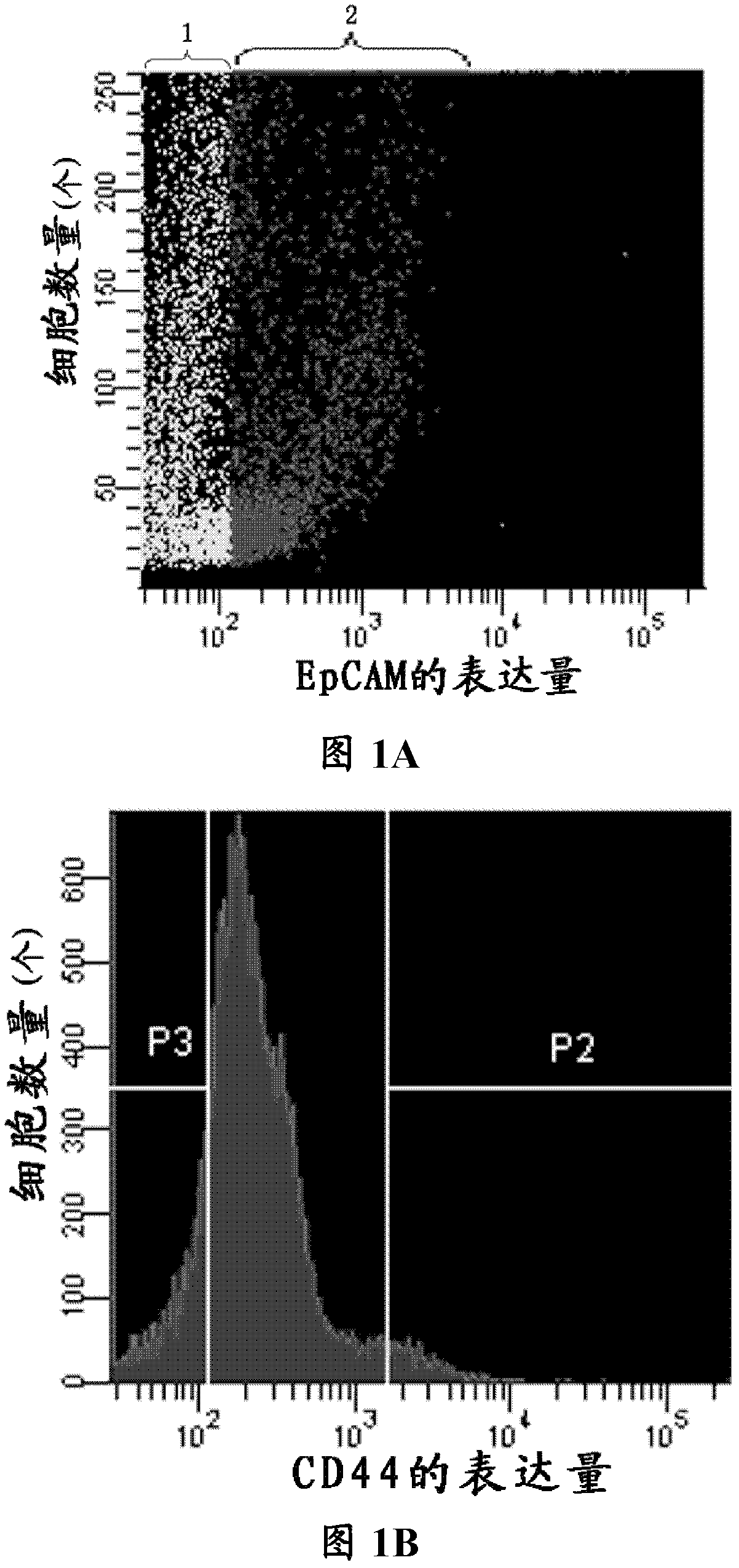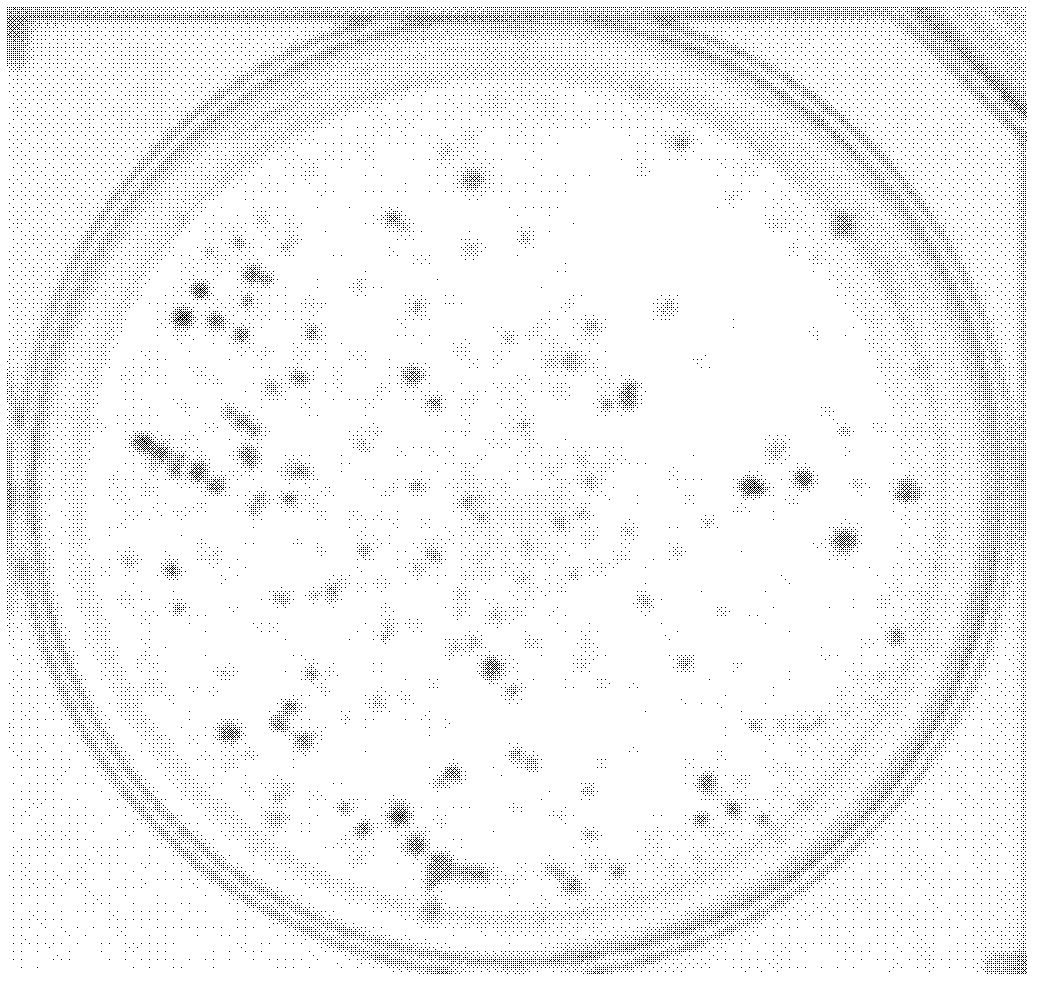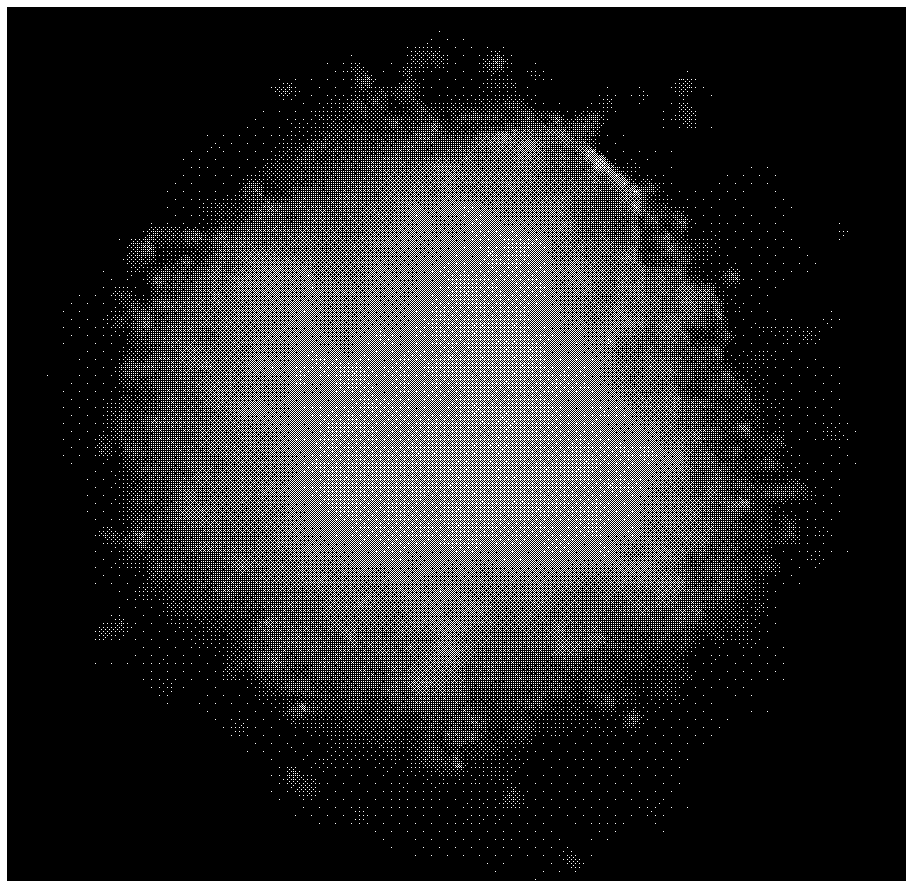A kind of human colorectal cancer tumor cell line and its preparation method and application
A cancer stem cell line and colorectal cancer technology, applied in the field of cell lines, can solve the problems of large sample differences, low tumor stem cell viability, and scarce number of tumor stem cells, and achieve high in vivo tumorigenic ability and strong drug resistance.
- Summary
- Abstract
- Description
- Claims
- Application Information
AI Technical Summary
Problems solved by technology
Method used
Image
Examples
Embodiment 1
[0041] Example 1 Isolation and Identification of Primary Colon Cancer Stem Cells
[0042] a) Isolation of primary colon cancer stem cells: take fresh colon cancer tissues from patients with colon cancer (taken from Beijing Cancer Hospital), and in phosphate buffer containing 300 units / mL (U / mL) penicillin and 300 U / mL streptomycin ( Rinse 3 times in PBS); cut it into pieces with sterile ophthalmic scissors; add 1 mg / ml (mg / mL) collagenase (purchased from Sigma Company) and 1 mg / mL hyaluronidase (purchased from Sigma Company) to digest solution, digested at 37°C for 30 minutes (min); centrifuged to remove the supernatant, resuspended in PBS, and filtered through a 40-micron cell sieve to obtain a single-cell suspension. The cells were incubated with mouse anti-human EpCAM Alexa Fluor647 monoclonal antibody (1:50, purchased from Cell Signaling Company) and mouse anti-human CD44FITC monoclonal antibody (1:50, purchased from BD Company) at 4°C for 15 minutes; EpCAM+CD44+ primar...
Embodiment 2
[0045] Example 2 Establishment of a cell line with characteristics of tumor stem cells
[0046] a) Establishment of a tumor stem cell line expressing CD44 membrane protein: the colon cancer cells isolated and cultured by the above method have the characteristics of tumor stem cells, have extremely high tumor formation ability and clone formation ability, and are named P6C. P6C can be stably passaged in vitro, and has been passed down to the 120th passage. P6C forms suspended cloning balls under low adhesion culture conditions, and can adhere to the wall to form stem cell-like clones (holoclone) under adhesion conditions.
[0047] b) The activation of the Oct3 / 4 promoter indicates the establishment of a cell line: when the Oct3 / 4 promoter is regulated and activated, the expression of EGFP emits green fluorescence, which indicates the activation state of the stem cell factor Oct3 / 4. The day before the transfection of the cell line P6C, the cell line P6C was digested with 0....
Embodiment 3
[0048] Example 3 Detection of differentiation characteristics of tumor stem cell line P6C
[0049] a) Digest the adherent cultured cell line P6C with 0.2% trypsin at 37°C to form a single cell suspension, count, add pH7.2 phosphate buffer saline (PBS) to a final concentration of 10 6 cells / ml.
[0050] b) Add fluorescently labeled mouse anti-human monoclonal antibody anti-CD24 (1:50, purchased from Biolegend); anti-CD44 (1:50, purchased from BD pharmingen); anti-CD133 (1:50, purchased from from Miltenyi); anti-CD45-FITC (1:50, purchased from BD pharmingen); anti-CD31 (1:50, purchased from BD pharmingen); anti-CK1 (1:50, purchased from Santa Cruz); anti- CK20 (1:50, purchased from Santa Cruz); anti-CDX2 (1:100, purchased from DAKO).
[0051] c) Incubate at 4°C for 20 minutes, and then use flow cytometry to detect the expression of the corresponding antigen; FITC-labeled goat anti-mouse IgG is incubated with the P6C cell line as a negative control.
[0052] Such as Fi...
PUM
 Login to View More
Login to View More Abstract
Description
Claims
Application Information
 Login to View More
Login to View More - R&D
- Intellectual Property
- Life Sciences
- Materials
- Tech Scout
- Unparalleled Data Quality
- Higher Quality Content
- 60% Fewer Hallucinations
Browse by: Latest US Patents, China's latest patents, Technical Efficacy Thesaurus, Application Domain, Technology Topic, Popular Technical Reports.
© 2025 PatSnap. All rights reserved.Legal|Privacy policy|Modern Slavery Act Transparency Statement|Sitemap|About US| Contact US: help@patsnap.com



